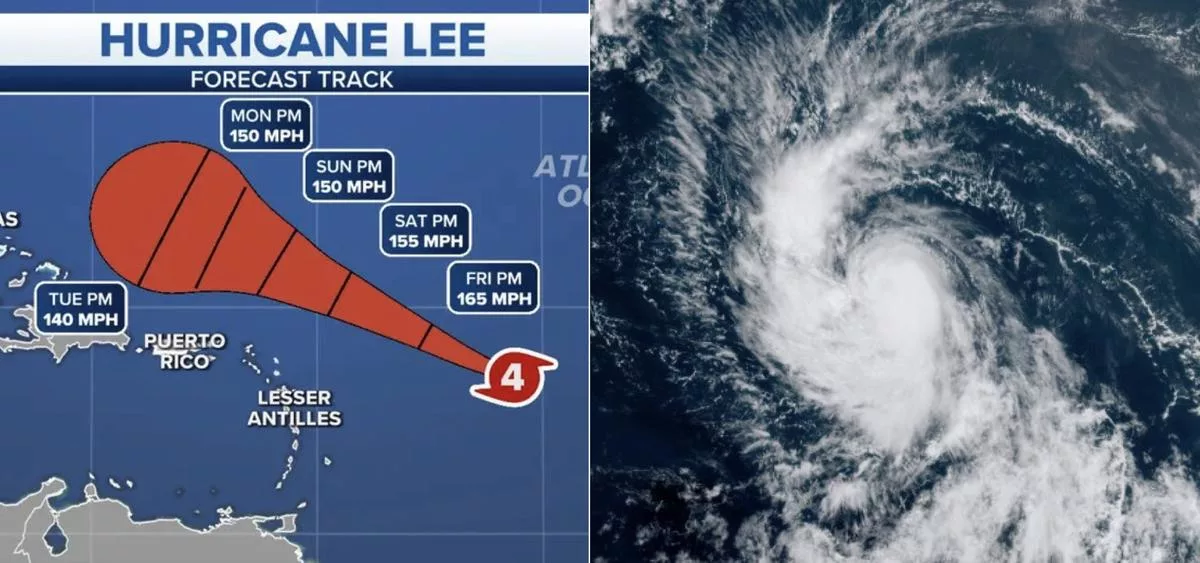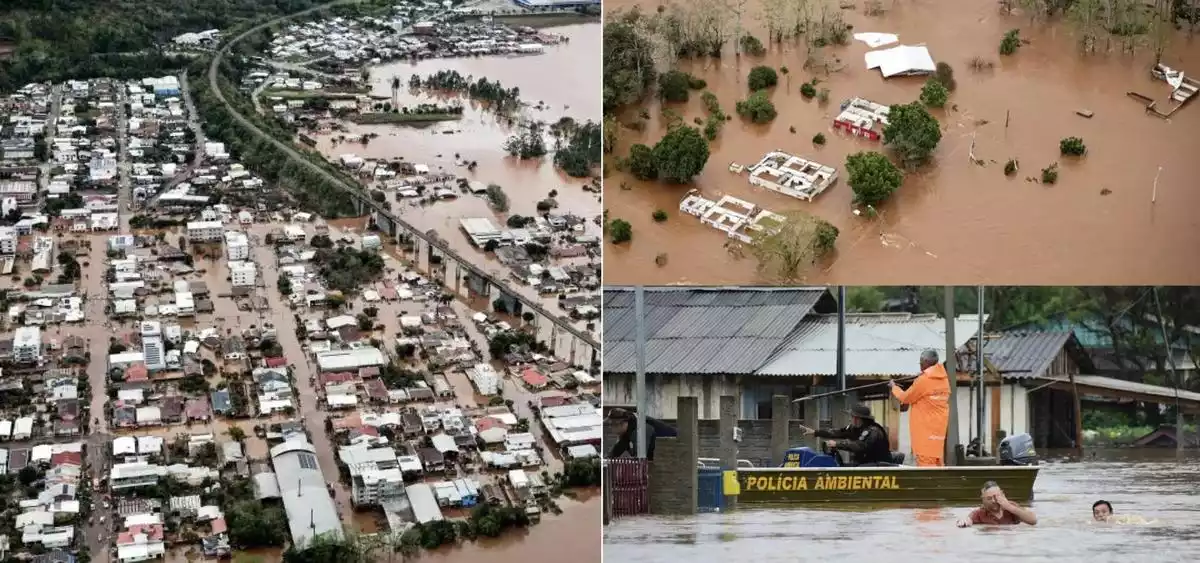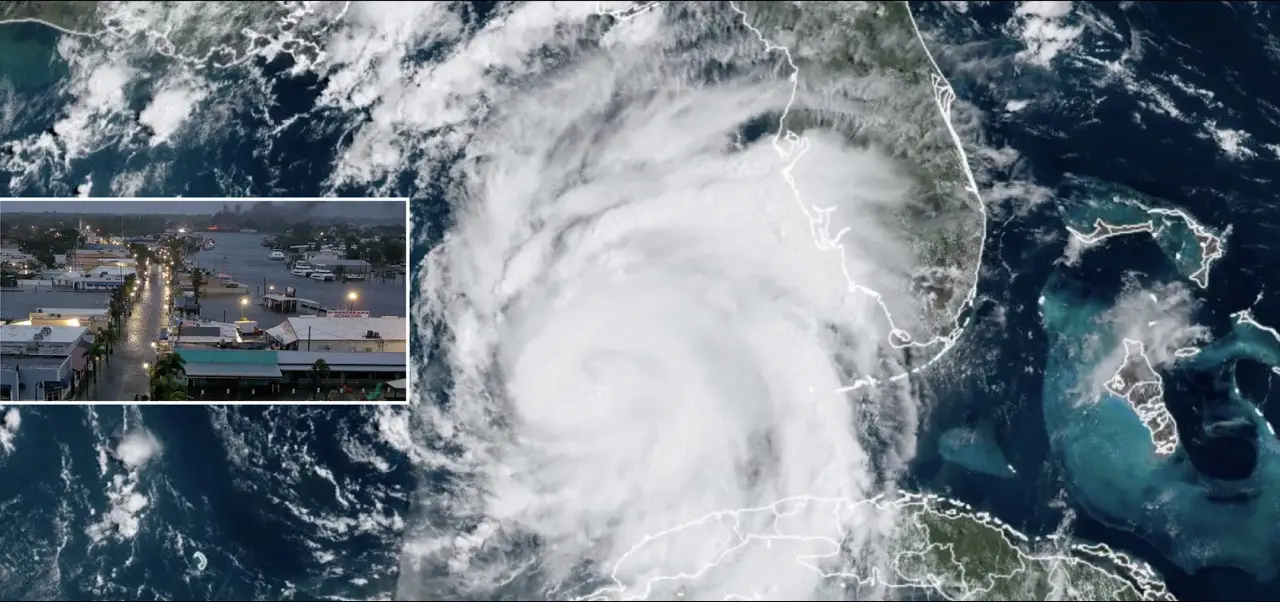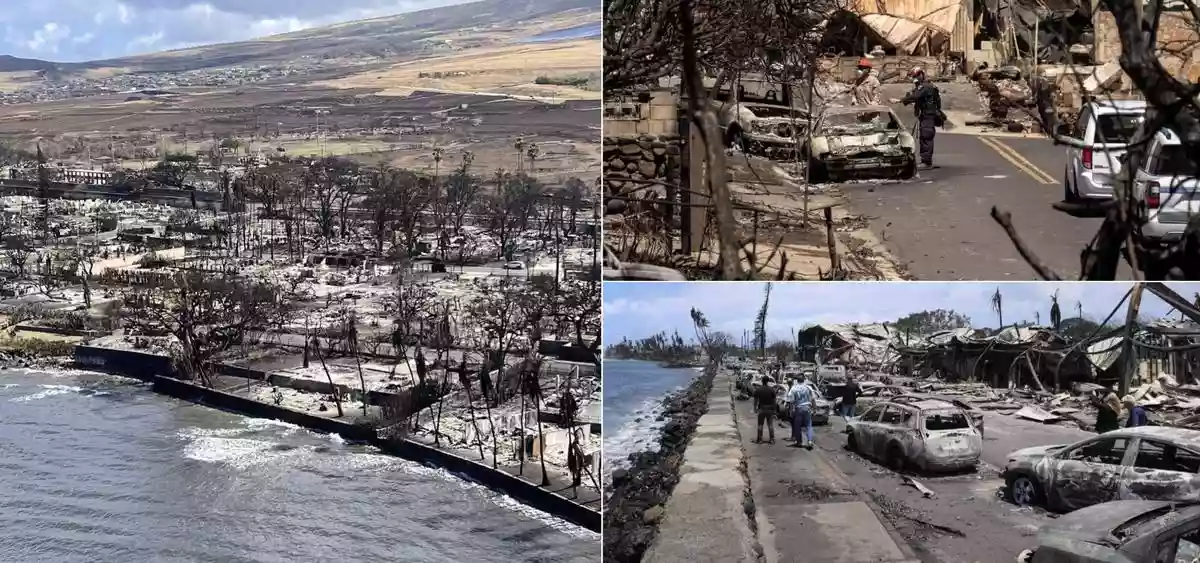In an unprecedented event, the planet experienced its hottest day ever recorded, not just once, but three days in a row. As regions worldwide grapple with scorching temperatures, concerns over the intensifying climate crisis loom large. The soaring heat has shattered previous records, emphasizing the urgent need for action to combat climate change.

Credits: Pixbay
With scorching temperatures spreading across the globe, experts warn of the devastating consequences of rising heatwaves and highlight the urgent need for action to combat climate change. According to data from multiple climate tracking agencies spanning several decades, the average global temperature soared to new heights this week.
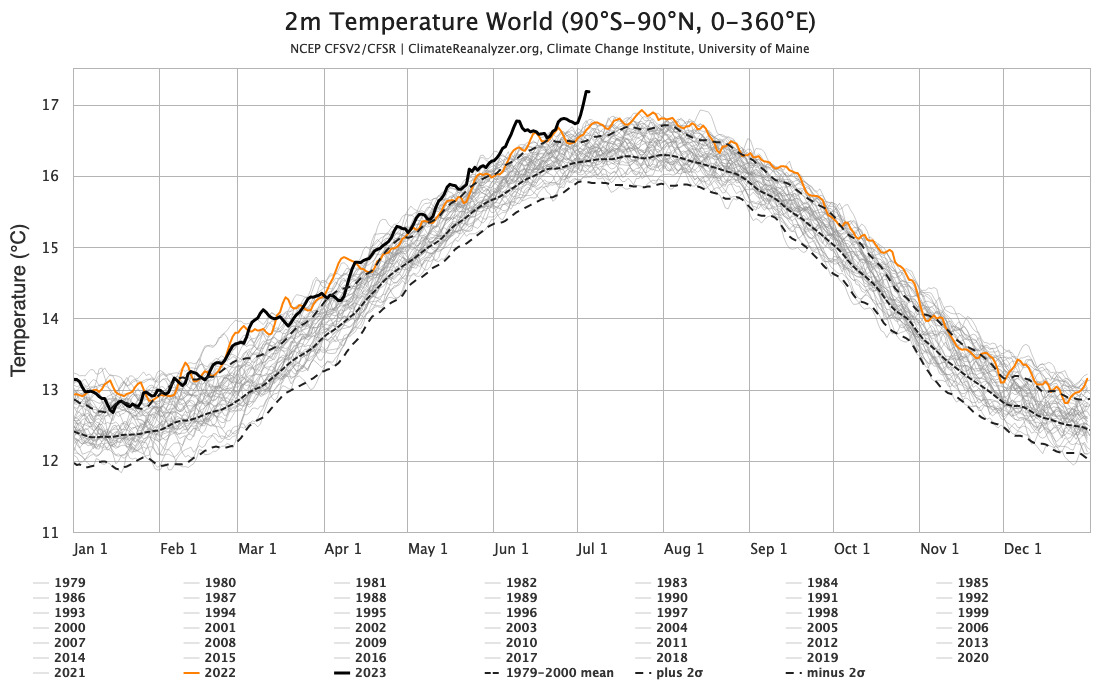
Credits: Climate Reanalyzer, Climate Change Institute, University of Maine, USA
On Monday July 3rd, the average global temperature reached 17.01 degrees Celsius (62.62 degrees Fahrenheit), surpassing the previous record of 16.92 degrees Celsius (62.46 degrees Fahrenheit) set in August 2016. This sweltering trend continued on July 4th, with the global temperature soaring to an even higher average of 17.18 degrees Celsius (62.92 degrees Fahrenheit). The record-breaking heat persisted on Wednesday.
These extraordinary temperatures were recorded by the US National Centers for Environmental Prediction and the European Union’s Copernicus Climate Change Service. The scorching heatwave has engulfed various regions, including the southern United States, China, North Africa, and even the frigid winter of Antarctica.
📈 According to preliminary data from the #ERA5 dataset, the global average 2m #temperature reached 16.88°C on Monday, breaking the previous record of 16.80°C from August 2016.
— Copernicus ECMWF (@CopernicusECMWF) July 5, 2023
Get the data 👉 https://t.co/V3rirrGxRD#Climate #ClimateChange pic.twitter.com/gwVEYxfPok
These new temperature records, although based on data sets dating back to the mid-20th century, are believed to be the warmest the Earth has experienced in a much longer timeframe. Scientists suggest that when considering climate data extracted from ice cores and coral reefs spanning millennia, these recent records are likely the highest temperatures witnessed in at least 100,000 years. These alarming events underscore the urgency of addressing climate change and reducing greenhouse gas emissions.
Climate scientists and experts have voiced deep concern over the escalating heatwaves and their implications for humanity and ecosystems. Friederike Otto, a climate scientist at Britain’s Imperial College London, remarked, “This is not a milestone we should be celebrating. It is most damaging to the people as well as the environment and the environmental scientists link this higher temperature with change in climate and the resultant El Nino weather pattern. The combination of climate change and the El Nino phenomenon has contributed to the intensification of global warming. Rising greenhouse gas emissions, particularly carbon dioxide, coupled with the influence of El Nino, have propelled temperatures to unprecedented highs.
'This is not a milestone we should be celebrating,' said climate scientist Friederike Otto of the Grantham Institute for Climate Change and the Environment at Britain's Imperial College London 4/5 pic.twitter.com/wMtWzAXTP4
— Reuters (@Reuters) July 5, 2023
Zeke Hausfather, a research scientist at Berkeley Earth, warned that increasing emissions and a growing El Nino event could lead to more record-breaking temperatures in the future. The consequences of extreme heatwaves have been devastating worldwide.
While experts warn that this record is likely to be broken again in the coming months, the preliminary nature of the record already highlights the alarming pace at which our planet is heating up. Contributing to this rise in temperatures is the occurrence of the natural climate phenomenon El Nino, which has a warming effect and is now amplifying the climate crisis.
However, this record-breaking heatwave is not an isolated incident. Throughout the year, heat records have been shattered worldwide, with devastating consequences. In late June, Texas and the Southern United States experienced a brutal heatwave, with triple-digit Fahrenheit temperatures and extreme humidity. Mexico faced scorching temperatures that claimed the lives of at least 112 people since March. India and China also endured deadly heatwaves, and the United Kingdom witnessed its hottest June since records began in 1884.

China also endured deadly heatwaves as Beijing bans outdoor work as the temperatures sores beyond 35 degree celcious
Paul Davies, the Met Office climate extremes principal fellow and chief meteorologist, emphasized that alongside natural variability, human-induced climate change has significantly contributed to the increasing likelihood of reaching record-breaking high temperatures. The Earth’s atmosphere is warming, and the frequency and severity of heatwaves are only expected to escalate in the future.
The new global average temperature record serves as a resounding wake-up call. Jennifer Francis, a senior scientist at Woodwell Climate Research Center, asserts that immediate action to reduce greenhouse gas emissions is imperative. This record-breaking day is more than just a statistic; it signifies the loss of lives and livelihoods for countless individuals and ecosystems.
With rising temperatures breaking records and heatwaves wreaking havoc worldwide, urgent action is needed to mitigate the devastating effects of global warming. As the world grapples with the challenges posed by extreme heat, it becomes increasingly clear that sustainable practices and reducing greenhouse gas emissions are imperative for asecure and livable future.
It is crucial that governments, industries, and individuals come together to address climate change, transition to renewable energy sources, and implement sustainable practices to protect our planet and future generations. As we move forward, it is crucial to acknowledge the impact of human activities on our environment and take the necessary steps to address the climate crisis. The urgent need to transition away from fossil fuels and embrace sustainable practices becomes increasingly apparent. Time is of the essence as we strive to safeguard our planet and ensure a sustainable future for generations to come.
WEB STORIES FOR YOU
Stay connected with Today On Globe for the latest Global Issues and News Updates.
Explore more related articles at [TOG News / TOG Article]

















